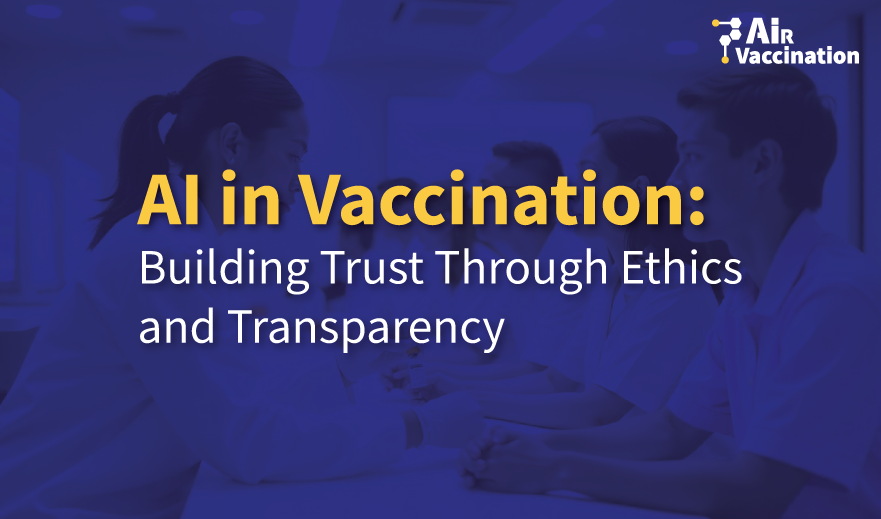AI in Vaccination: Building Trust Through Ethics and Transparency
Artificial Intelligence (AI) is transforming the way vaccines are designed, offering unprecedented speed and precision. However, with every technological breakthrough comes an essential question: how do we ensure that innovation is trustworthy, ethical, and transparent?
This is one of the central challenges of the future of smart vaccination, and a key focus for the Vaccination project developed by the AIR Institute.

Why ethics matter in vaccine innovation
Vaccines are not just a scientific achievement — they are a public health tool that relies heavily on trust. People must feel confident not only in the safety of vaccines, but also in the processes behind their development.
When AI is involved, questions arise:
- How is biomedical data being used?
- Are algorithms making decisions in a fair and unbiased way?
- Who is responsible for validating results?
Addressing these concerns openly is critical to ensure that society embraces these innovations.
Transparency as a foundation of trust
One of the most important principles in scientific progress is transparency. Sharing methodologies, results, and limitations fosters public trust and strengthens collaboration between institutions.
In projects like Vaccination, transparency is not only a value but a necessity. By explaining clearly how AI systems analyze data, predict outcomes, and support vaccine design, researchers help ensure that the public perceives this technology as an ally, not a mystery.
Towards a responsible future
Ethics and transparency are not barriers to innovation — they are what make innovation sustainable. For AI-driven vaccination to truly transform healthcare, it must respect principles of equity, data protection, and accountability.
At the AIR Institute, this commitment guides the development of tools and methodologies that aim not only to accelerate vaccine design, but also to strengthen public confidence in science.
What’s next?
In future blog posts, we will explore other key elements that complement this ethical dimension, such as the role of data in the future of health, the importance of collaboration between disciplines, and the impact of high-performance computing on biomedical research.
The path towards smart vaccination is not just about technological advances — it is about building a future where science, innovation, and society move forward together.